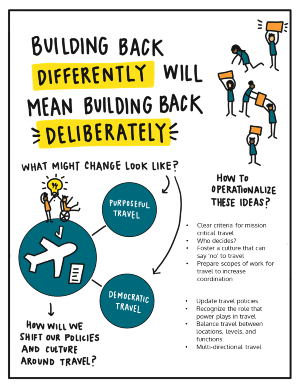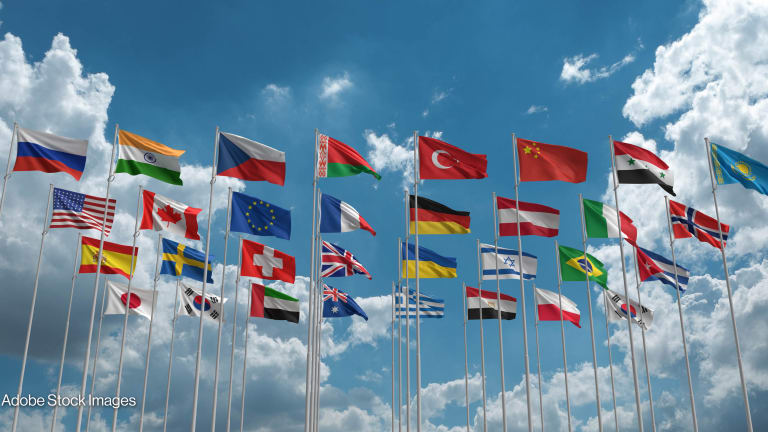
The international NGO sector is getting its fair share of reproach these days for the part that it plays in maintaining financial, programmatic, and decision-making power in the global north. And while global donors dictate much of how the sector operates, INGOs are not without agency in determining their own operating models and can initiate deep change if they so decide.
Over the past nine months, a group of CEOs from a diverse range of organizations met monthly to navigate the changing INGO ecosystem. They aimed to explore topics immediately relevant to today’s leadership, share best practices, and develop a cohort of peers. The group achieved those goals and more, trusting each other enough to be open and vulnerable in discussions about equity and power, while also challenging and validating one another in developing a shared narrative about the future of the sector.
These CEOs are doing thoughtful and deliberate work around transformation within their respective organizations. As a group, they represent a set of leaders that we can and should learn from.
A vision of the future
The CEO cohort deeply considered what the INGO sector might look like in five years. There were some near certainties: Planning will be difficult, career paths will look very different for young people entering the sector, jobs will continue to change, and people will have to adapt.
Additionally, operational structures and funding models will have to change. Organizations will likely be more horizontal. Funding will be full of fits and starts with donors and will be more flexible — hopefully.
Lastly — and perhaps most importantly — consolidation and dissolution of today’s INGOs will likely pick up momentum. We’ve already seen mergers of large INGOs, such as Project Concern International with Global Communities or Lutheran World Relief with IMA World Health. Meanwhile, some groups — like Health Alliance International — are taking themselves out of the picture entirely, dispersing all existing operations among partners in low- and middle-income countries.
How INGOs are acting their way into the future
Along these lines, the cohort actively questioned whether INGOs can feasibly or ethically continue in their current operational form. The paradigm within which we work is shifting, and as such, we can’t rely on traditional assumptions as we build back from the disruption of the last year and a half. Rather, we must build back deliberately and purposefully.
Here are four assertions that leaders at the forefront are considering as they act their way into the future, one strategic and tactical decision at a time:
1. INGOs will shift in purpose and mission away from technical implementation and toward a role focused on learning, knowledge curation, movement-building, and advocacy at the global level. This can and will often require structural changes to organizations.
As Dorothy Nyambi, CEO at Mennonite Economic Development Associates, said in one of the CEO sessions: “We need to end the superiority complex and focus on the best use of people and resources for maximum effect. We need to question the notion of ‘capacity building’ and who is building whose capacity; it is about capacity exchange.”

2. Successful organizations will focus on flexible funding and work to get off the treadmill of project funding. Both donors and INGOs must decentralize the funding structures of the global north, and decisions must be made closer to the ground in countries where the work is done. This is a growing trend for the U.S. Agency for International Development, and we hope to see the large foundations do the same.
“We should encourage the transfer of resources to accelerate progress both in foundations and in our own coffers. That means reconsider how much we hold in any kind of endowments or rainy day fund and really think about transferring resources to the front lines,” said Mary Beth Powers, CEO at Catholic Medical Mission Board.
3. The role of headquarters is fundamentally shifting. The term “HQ” is itself outdated. HQs will shift to providing support services and funding support rather than housing all decision-making. The COVID-19 pandemic proved that geography matters much less than before. We need to evaluate and shift the power and decision-making centers, while also encouraging autonomy.
“I wish some INGO leaders ... would look more critically at the amount of control, decision-making, and funding that remains in the U.S./HQ. Enough talk about localization, decentralization, etc.; [it is] time to put our money and decision-making where our mouths are,” said Sean Carroll, CEO at American Near East Refugee Aid, or Anera. “We’ve completely stopped using the term ‘HQ,’” he added.
4. Organizations will be more horizontal, with less consolidated power in any one location or group. Decision-making will become more transparent and more disciplined, and it may follow the principle of subsidiarity, with decisions being made as close to the action as possible.
CEO Eleanor Allen has just led Water For People through a major transformation along these lines. She stated, “[We are] creating transformation committees in each region to address the JEDI [justice, equity, diversity, and inclusion] and cultural issues that inhibit our ability to be inclusive to all employees and have equal opportunities for leadership for all, subsidiarity in decision-making, and ensuring Water For People is a great place to work in all our offices and locations.”
What’s next for INGO leaders?
After 60 years of development work, today’s context has changed dramatically. How will the leaders of today and tomorrow leverage that change and do what is right with respect to local communities? In speaking with EngenderHealth’s Traci Baird and Ipas’ Anu Kumar, in addition to the other CEOs, a picture of what is next for INGO leadership emerged.
Leading with optimism and openness to other ideas — that is, becoming better listeners than actors — will be necessary to thrive. Leaders will have to let go of old communication styles and try out motivational interviewing or other techniques that get others to propose appropriate solutions, rather than coming up with a fully baked plan from senior leadership. Ideally, organization-to-organization collaboration will rise over competition. INGO leaders will need to act more deliberately to decouple profile-building from successful, community-led outcomes.
For Humentum’s part, we are taking an active role in facilitating learning and understanding across organizations. We are also repositioning ourselves to rethink traditional operating models and ways to shift decision-making and funding to national and local NGOs in low- and middle-income countries.
Thank you to the following CEOs for contributing to this opinion piece: Water For People’s Eleanor Allen, EngenderHealth’s Traci Baird, Anera’s Sean Carroll, Ipas’ Anu Kumar, MEDA’s Dorothy Nyambi, and CMMB’s Mary Beth Powers.








